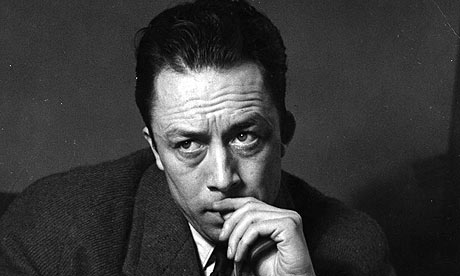
Literary Fiction
Setting
Time: unknown Saturday
evening
Place: North
Dublin
Climax: when the boy in the bazaar decides not to buy a
present for Mangan’s sister
Suspense & Dilemma: ---
Conflicts: emotional, mental, and internal
Characters
Nameless
boy: flat, dynamic - protagonist
Mangan’s
sister: flat, static
Uncle:
flat, static
Aunt:
flat, static
Point of view: first
person
Irony: irony of situation - in the bazaar at the end
of the story
Symbols
Windows: the space separating the interior life
from the exterior life, the threshold between domestic space and the
outside world and through them the characters in Dubliners observe their own
lives as well as the lives of others
Dusk and Nighttime: the half-life state the characters in
Dubliners occupy, both physically and emotionally, suggesting the intermingling
of life and death that marks every story. The darkness renders Dubliners’
experiences fearful and doomed
Themes
The Prison of Routine
Restrictive routines and the repetitive,
mundane details of everyday life mark the lives of all people in the world, and
trap them in circles of frustration, restraint, and violence
The Desire for Escape from
unhappy life
Paralysis & Death
In most of the stories in Dubliners, a
character has a desire, faces obstacles to it, then ultimately relents and
suddenly stops all action. These moments of paralysis show the characters’
inability to change their lives and reverse the routines that hamper their
wishes. Such immobility fixes the Dubliners in cycles of experience. The young
boy in “Araby” halts in the middle of the dark bazaar, knowing that he will
never escape the tedious delays of Dublin and attain love. These moments evoke
the theme of death in life as they show characters in a state of inaction and
numbness
Epiphany
Characters in Dubliners experience both
great and small revelations in their everyday lives, moments that Joyce himself
referred to as “epiphanies,” a word with connotations of religious revelation.
These epiphanies do not bring new experiences and the possibility of reform, as
one might expect such moments to. Rather, these epiphanies allow characters to
better understand their particular circumstances, usually full of sadness and
routine, which they then return to with resignation and frustration. Sometimes
epiphanies occur only on the narrative level. “Araby concludes with epiphany
that the character fully registers, yet this epiphany is tinged with
frustration, sadness, and regret. The epiphany highlights the repeated routine
of hope and passive acceptance that marks each of these portraits, as well as
the general human condition
Analysis
In “Araby,” the allure of new love and distant
places mingles with the familiarity of everyday drudgery, with frustrating
consequences. Mangan’s sister embodies this mingling, since she is part of the
familiar surroundings of the narrator’s street as well as the exotic promise of
the bazaar. She is a “brown figure” who both reflects the brown façades of the
buildings that line the street and evokes the skin color of romanticized images
of Arabia that flood the narrator’s head. Like the bazaar that offers
experiences that differ from everyday Dublin, Mangan’s sister intoxicates the narrator
with new feelings of joy and elation. His love for her, however, must compete
with the dullness of schoolwork, his uncle’s lateness, and the Dublin trains.
Though he promises Mangan’s sister that he will go to Araby and purchase a gift
for her, these mundane realities undermine his plans and ultimately thwart his
desires. The narrator arrives at the bazaar only to encounter flowered teacups
and English accents, not the freedom of the enchanting East. As the bazaar
closes down, he realizes that Mangan’s sister will fail his expectations as
well, and that his desire for her is actually only a vain wish for change
The narrator’s change of heart concludes the
story on a moment of epiphany, but not a positive one. Instead of
reaffirming his love or realizing that he does not need gifts to express his
feelings for Mangan’s sister, the narrator simply gives up. He seems to
interpret his arrival at the bazaar as it fades into darkness as a sign that
his relationship with Mangan’s sister will also remain just a wishful idea and
that his infatuation was as misguided as his fantasies about the bazaar. What
might have been a story of happy, youthful love becomes a tragic story of
defeat. The narrator’s failure at the bazaar suggests that fulfillment and
contentedness remain foreign to Dubliners, even in the most unusual events of
the city like an annual bazaar
The tedious events that delay the narrator’s
trip indicate that no room exists for love in the daily lives of Dubliners, and
the absence of love renders the characters in the story almost
anonymous. Though the narrator might imagine himself to be carrying thoughts of
Mangan’s sister through his day as a priest would carry a Eucharistic chalice
to an altar, the minutes tick away through school, dinner, and his uncle’s
boring poetic recitation. Time does not adhere to the narrator’s visions of his
relationship. The story presents this frustration as universal: the narrator is
nameless, the girl is always “Mangan’s sister” as though she is any girl next
door, and the story closes with the narrator imagining himself as a creature.
In “Araby,” Joyce suggests that all people experience frustrated desire for
love and new experiences
Some parts are taken from sparknotes.com





 سید شهاب الدین ساداتی
سید شهاب الدین ساداتی